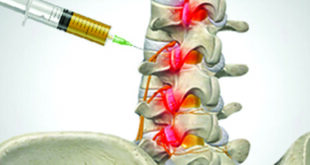 We all want to adopt a healthier lifestyle, but most of us do not know where to begin. The advice on diet and lifestyle choices to achieve these goals are vast, can be oppositional and often require drastic changes. It may feel overwhelming and we just don’t know where to start in order to make an impact on our health and well being.
We all want to adopt a healthier lifestyle, but most of us do not know where to begin. The advice on diet and lifestyle choices to achieve these goals are vast, can be oppositional and often require drastic changes. It may feel overwhelming and we just don’t know where to start in order to make an impact on our health and well being.
In an effort to identify evidence based practices that have a dramatic impact on overall health we turned to Dr. Liji George with BayCare Medical Group, a board certified family medicine specialist with more than 21 years experience in Family Medicine. Dr. George reports that “Incorporating small changes in diet and exercise over time is easier to maintain and leads to a happier, healthier life” explains Dr. George.
Dr. George explains when you focus on just a couple of small changes at a time, you begin to ingrain these habits as lifetime changes. The all or nothing approach more often than not fails to create lasting changes. Research shows taking small steps -not giant leaps- is the best way to attain lasting results.
Dr. George recommends to start by choosing small goals to add to your lifestyle and those to begin to limit. Successfully incorporating these changes for 30 days in your lifestyle creates a new habit. Once a new habit is created, pick a few more areas to focus on. In a year you are likely to have fully adopted the changes to meet the evidence based recommendations to live a healthy life.
Dr. George recommends to include more non-starchy vegetables, movement/exercise, water, and time for something each day you enjoy. At the same time work to limit sugar, salt, fats, and stress.
Vegetables
Add colorful vegetables to every meal. Vibrant colored vegetables are packed with vitamins, nutrients, fiber and lower in caloric value. Work toward 1/2 of your plate packed with these superfoods for every meal. Carrots, leafy greens, squash, tomatoes, zucchini, bell peppers, cauliflower, broccoli, eggplant, cabbage, radish, mushrooms, cucumbers are examples of vegetables to intentionally increase in your diet. Starchy vegetables such as potatoes and corn should be limited.
Some simple ways to increase vegetable intake: offer a plate of sliced veggies with hummus to snack on while dinner is being prepared. Keep ready to eat chopped vegetables in your fridge as an easy to grab and much on snack.
Exercise
Move more. This doesn’t mean you have to join a gym or train for a marathon. It simply means move your body at a pace that would be considered brisk for 30 minutes 5 times a week. These do not have to be 30 continuous minutes, three 10 minute sessions of activity that makes you breathe a little harder is a great place to start. The idea is to move more, and start at your current fitness level. Significant health benefits can be attained by just moving more, move for longer periods of time more often. Take the stairs instead of the elevator or escalator, park farther from the entrance of a store, set aside time in the day for intentional movement. Dr. George also recommends trying many different forms of exercise until you find something you enjoy and have someone you can do this activity with, it’s always more fun when we have an exercise buddy.
Water
Americans generally don’t consume enough water. Even slight levels of dehydration can cause mood changes, fatigue, headaches, and anxiety. We often misinterpret thirst for hunger, and staying hydrated will keep you feeling full longer. Adults should drink 1/2 of their weight in ounces of water daily; which means a 150 pound adult should aim for 75 ounces per day. While this may seem like a daunting task, start simply, make a habit of carrying cool water with you wherever you go. Drink a full glass of water before meals and snacks. Fill up a container with your target ounces of water and keep in the refrigerator. Make a habit of sipping water throughout the day. Spice up the taste of your water with a squeeze of citrus fruit or ginger.
Fun
Enjoying life is a key to a healthy life. Taking time each day to do something just for yourself is vital to enjoying life. What do you enjoy most – Reading, painting, chatting with a friend or family member, a craft or hobby? Begin to look at taking this time for yourself each day as part of a healthy lifestyle.
Try to limit:
Sugar
The average US diet contains 10 times the recommended daily intake of sugar. Less than 10% of daily calories should come from sugar. Sugar is often a hidden ingredient in processed foods, sauces, and condiments that we simply aren’t aware is added. Culprits include salad dressings, marinades, barbecue sauce, and sauces included in frozen vegetables. Try substituting fresh vegetables instead of processed or pre-prepared vegetable dishes, read labels and look for the carbohydrate and sugars in sauces, marinades, and condiments. There are often options with a much lower sugar content.
Don’t drink your calories. Sodas and fruit juices are calories that have no nutritional value but are packed with sugar. Instead eat a piece of fruit, not only will you get the vitamins & nutrients but also added fiber that juices don’t offer without the added sugar. Substitute sodas with carbonated water, there are many options that have no sugar or sugar substitute in a variety of flavors.
Salt
Salt has been linked to high blood pressure, increased risk of heart attack and stroke. Salt/Sodium also causes water retention and generally slows down our lymphatic system which moves toxins from our body. While our bodies do need some salt, it is very little less than 5 grams/day for an average adult and less than 1.5 grams/day for anyone with a cardiac condition. Instead of salt to flavor foods, try salt free options of blended spices they are full of flavor and can enhance foods taste. Steer away from processed foods, as these are usually filled with sodium; make the same dishes from fresh ingredients. When cooking, don’t add salt to dishes – taste the finished product first. Move to a low flow salt shaker and gradually replace the use of salt with blended salt free spices. Skip the sports drinks – these have added sodium and unless you are an endurance athlete you will not need to replace sodium in your body.
Fat
Fat from animals is calorie dense and has little nutritional value, not to mention it is the culprit in high cholesterol leading to increased risk of heart attack, stroke and heart disease. The average adult needs 2 teaspoons of mono-unsaturated fat daily. Make this nutrient dense by including nuts, avocados, and vegetable oils in your diet. Omega 3 fatty acids support brain and heart health and can be found in fatty fish such as salmon and tuna. Eating seafood twice week is a great way to increase healthy fats and healthy proteins.
Another way to decrease fat is to move to leaner forms of protein. On your plate, protein should take up 1/4 of the space. When choosing protein sources lean toward chicken, turkey, seafood, soy based products (tofu), and lean cuts of meat. Ground turkey and chicken can easily be substituted for ground beef in many dishes. It’s also easy to substitute 1 pound of ground beef for 1/2 pound of ground turkey or chicken and 1/2 pound of lean ground beef. Again small changes can really add up to massive benefits in health.
Stress
Life’s stressors can play havoc on your health. By increasing exercise and taking time for yourself everyday you will begin healthy ways of managing those stressors. However, during increased time of stress pay extra attention to ways to intentionally manage stress. Take time to confide in a friend, learn to meditate, and if needed ask for help.
At the end of the day, lasting changes that have dramatic effects on our health & wellbeing start with small steps. Choose two goals, work toward those and slowly adopt more goals over time. Your health is not an all or nothing practice, take small steps and offer yourself grace through the process it won’t take long before you notice a positive change in how you feel and your health.
Dr. Liji George is board certified in family medicine. She earned her Doctor of Medicine from Odessa State Medical University in Odessa, Ukraine. She continued her medical education by completing a family medicine residency from Creighton University School of Medicine in Omaha, Nebraska.
Dr. George believes prevention is better than cure. She puts an emphasis on preventive medicine, along with building relationships with her patients. She works towards creating a personalized treatment plan, while ensuring quality and open communication. An accomplished author, Dr. George has contributed articles to peer-reviewed publications like the Florida Family Physician. She is a member of the Florida Academy of Family Physicians, the American Medical Association, the American Academy of Family Physicians and the Neurological Injury Compensation Association of Florida. She speaks Russian, Hindi, Malayalam and Tamil.
BayCare Medical Group Primary Care
1601 W. Timberlane Drive, Suite 300
Plant City, FL 33566
To schedule an appointment please visit DrLijiGeorge.org or call (813) 754-4611
 Central Florida Health and Wellness Magazine Health and Wellness Articles of the Villages
Central Florida Health and Wellness Magazine Health and Wellness Articles of the Villages



